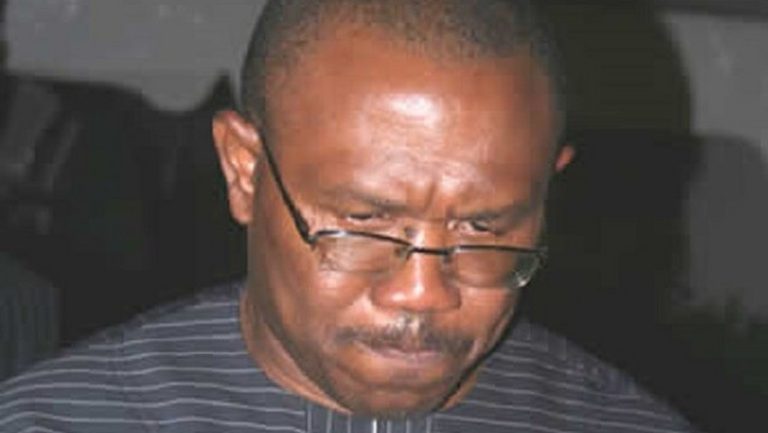Peter Obi’s travails at the Heathrow Airport in London, United Kingdom, may also be connected to his refusal to file the annual account records of Next International Limited, a firm he operates in the country, for a routine auditing process as stipulated by the UK business laws.
Recall that a PREMIUM TIMES investigation had found that the firm was struck off in September 2021 after ignoring repeated notices issued by the Companies House, an executive agency of the British government, for government-mandated checks and audits.
The report highlighted portions of the UK laws stating that a compulsory strike-off is imposed on a company by creditors or by the Companies House for non-submission of annual accounts or failure to notify Companies House about a change of official registered office address. It further said that once a company is struck off, its details will be removed from the Companies House register and the company ceases to exist.
According to sources, Obi’s refusal to surrender his firm’s finances to the government’s searchlight may be related to the PANDORA PAPERS leak which occurred in the same year and which detailed how government officials and political figures, including Obi, concealed proceeds of shady deals, received kickbacks and laundered ill-begotten funds through a network of firms domiciled in different parts of Europe, including the United Kingdom.
The intel derived from the leak has strengthened the institutional capacity of Europe’s anti-money laundering units to trace, detect, and flag illegal cash flows into and within the continent. This knowledge has increased the dread of actors responsible for the act and many have taken moves to either move their funds to a safer haven or temporarily halt transactions that may cause suspicion and set the authorities on their trail.
To analyse the situation, a UK business lawyer was contacted and he told the publication that, “the dots are there to connect and it makes for a plausible story that a man whose firm was de-listed for refusing to comply with UK audit laws, and who was also a prominent mention in a most damaging leak about how corrupt individuals use Europe as a conduit and treasure box for stolen wealth, is now having difficulty travelling into the UK.”
“Any number of things could be happening. The de-listing of his business means that the entity must discontinue operations. Failure to do that could warrant an investigation and possible charge. There is also the possibility of obstruction if the audit is considered a step in piecing together the puzzle of illicit cash flows,” he concluded.
Meanwhile, Peter Obi has also raised eyebrows with the series of campaign fund-raisers he hosted in the United Kingdom and across the pond in the United States of America. Although Nigeria is lax about campaign finance regulations, it remains a serious issue in the UK and America. For example, former President Trump was recently indicted over accusations that he misrepresented details of expenses made from his campaign account, and former UK Prime Minister Boris Johnson continues to face questions over his handling of large campaign donations received from donors, including a controversial renovation project carried out at the official residence.
It remains unclear whether Obi acted in compliance with the stringent laws surrounding fund-raising in the country, especially for political purposes whether local or foreign. Recall that the former Anambra governor raised dust when he embarked on a campaign tour in Europe and America during which he was widely reported to have billed attendees staggering amount in ticket prices to watch him speak, in collaboration with organizers who were citizens of the UK, America, and Germany.
There has been no transparent account of how the funds clawed from the event and other fund-raising efforts were managed. Back home in Nigeria, infighting recently broke out in the Labour Party over leadership control, with a different faction accusing Obi and his henchmen of looting and mismanaging party funds. Also, earlier before the election, members of at least two state chapters of the party wrote a public letter demanding the removal of their chairmen, including national figures such as Doyin Okupe, over corruption and embezzlement.
Mr Okupe, the Director-General of the Obi campaign, was disgraced from his position after he was found guilty of money laundering by a Nigerian court. These events have formed a dark cloud around Obi and made him a subject of local and foreign investigation, sources claim.
Another related factor that may have caused Obi’s Easter ordeal is his suspicious links to Bishop David Oyedepo, the founder of the Living Faith Church, who remains banned from entering the UK over alleged money laundering and criminal assault. Bishop Oyedepo was blacklisted by the UK authorities over sundry allegations, including tax evasion involving a sum reported to be around £16 Million. Recently, an audio leak exposed his collaboration with Obi in the execution of divisive campaign antics involving the spread of targeted messages to Christians seeking to persuade them to view the electoral contest as a “religious war.”
There are indications that the West may have more details about the dark collaboration between the candidate, who is suspected of operating illegal businesses and bank accounts abroad, and the brash cleric who is banned from the UK on the account of tax evasion and other suspicious transfer of funds. This is corroborated by a recent leak at the US Pentagon which showed that the Americans surveilled relevant actors in the Nigerian election and obtained intel from communication taps, including phone calls.

